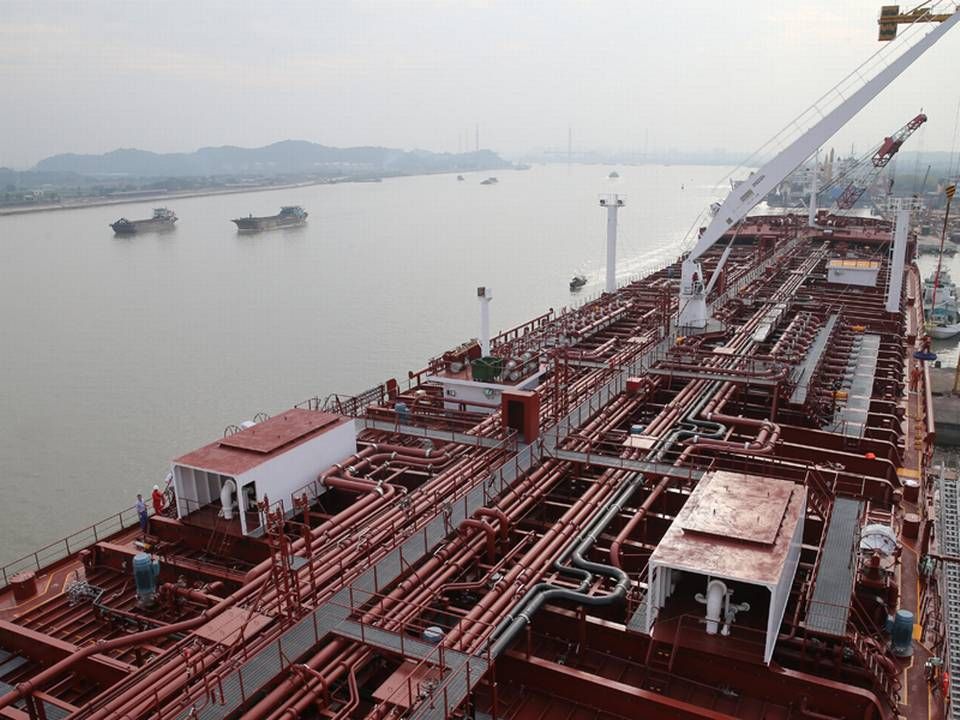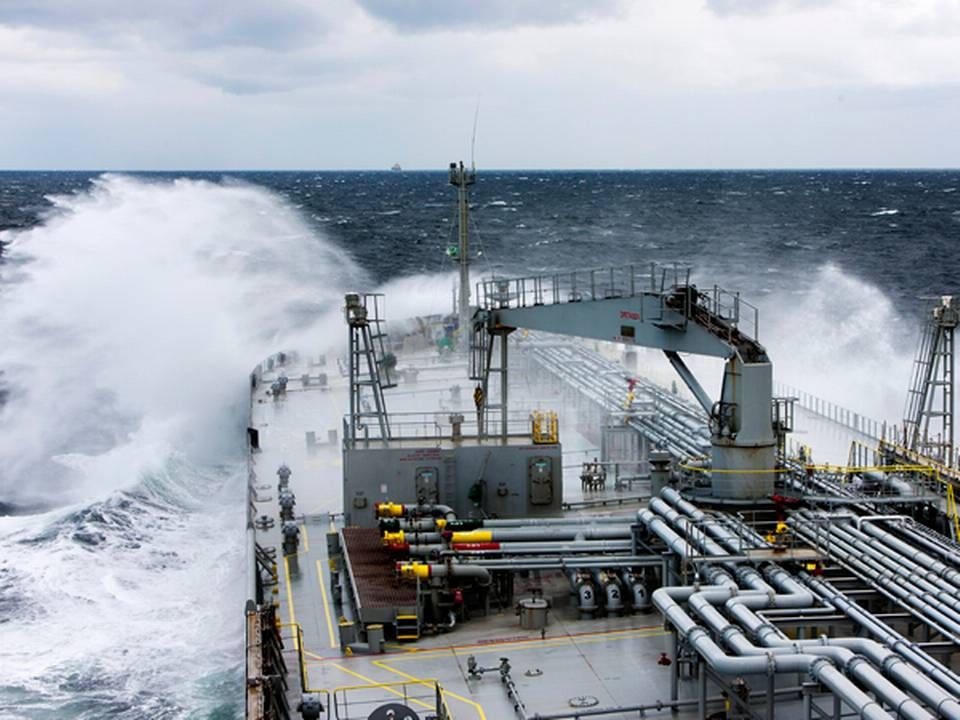Hafnia Tankers books 2017 deficit: We need to be patient

Conditions are more or less in place for a recovery in product tanker, says CEO Mikael Skov in relation to Hafnia Tankers' reporting a deficit for 2017.
Oil stockpiles have been reduced, the excess supply of vessels has decreased, and Hafnia Tankers is experiencing a growing demand from customers.
"The overall factors point in the right direction, but we need to be patient. We project a better market in 2018 than in 2017," Skov tells ShippingWatch.
He declines to point to a more specific date for when the market will balance out.
"It's difficult to determine a specific point in time for a recovery. Right now we feel that oil stockpiles have been reduced to a level which, together with more demand for refined products, should result in increased transport activity," says Skov.
In 2017, the company achieved revenue of USD 187.2 million, down from 2016's revenue of USD 194.7 million. And Hafnia Tankers booked a deficit of USD 11.6 million against a profit of USD 12 million.
"Of course one's never pleased with a deficit year. We note that these problems apply broadly for the sector overall. The tanker market has generally disappointed, and 2017 has not been as strong as we hoped for," he says.
Far from satisfactory
Hafnia Tankers' fleet is placed under commercial management with Hafnia Management, and in a recent interview with ShippingWatch, Hafnia Management CEO Anders Engholm commented on the beginning of 2018:
"Far from satisfactory," he said.
This description came despite the fact that 2018 has brought a cold winter in North America and in the norther part of the Baltic, which normally produces a peak season.
"Historically the first quarter of the year provides a strong start, but that hasn't been the case this year, and we've only seen a few short-lived exceptions in December of something resembling peak season levels," Engholm told ShippinWatch.
Denmark's Norden is similarly worried about 2018. In relation to publication of the annual report for 2017, CEO Jan Rindbo told ShippingWatch that the company expects its tanker unit, unlike its dry bulk business, could suffer a deficit this year.
Hafnia Management: unsatisfactory start to 2018
For the full year, Norden projects that the result for its product tanker business could end up between a deficit of USD 15 million and a profit of USD 5 million.
"In product tanker, we've increase exposure significantly ahead what we expect will be better markets. We have especially chartered in ships on TC contracts and have taken eight newbuilds in, scheduled for delivery in the years to come," Rindbo told ShippingWatch in relation to Norden's annual report.
Still waiting
As Skov and Hafnia Tankers are looking to arm themselves with patience, the same applies to Torm. In relation to publication of the annual report for 2017, Torm Executive Director Jacob Meldgaard, like Skov, also noted that the market fundamentals needed for a recovery are present.
"I still believe that, but we're still waiting for a recovery in product tanker. What we can work from right now is that the earnings we're experiencing in 2018 have been more or less on par with 2017. We haven't seen any major step up or down to indicate that our first quarter in 2018 should be worse than in 2017," said Meldgaard.
Like Torm, Hafnia Tankers does not publish concrete guidance for its results, and Skov thus declines to comment on whether he expects Hafnia Tankers to deliver a profit this year.
Hafnia Tankers operates a fleet of 42 vessels with a combined value of USD 1.03 billion by the end of 2017.
English Edit: Daniel Logan Berg-Munch
Related articles
Hafnia Management: unsatisfactory start to 2018
For subscribers
Product tanker in intense consolidation race
For subscribers
Torm delivers full-year profit in challenging tanker market
For subscribers



















